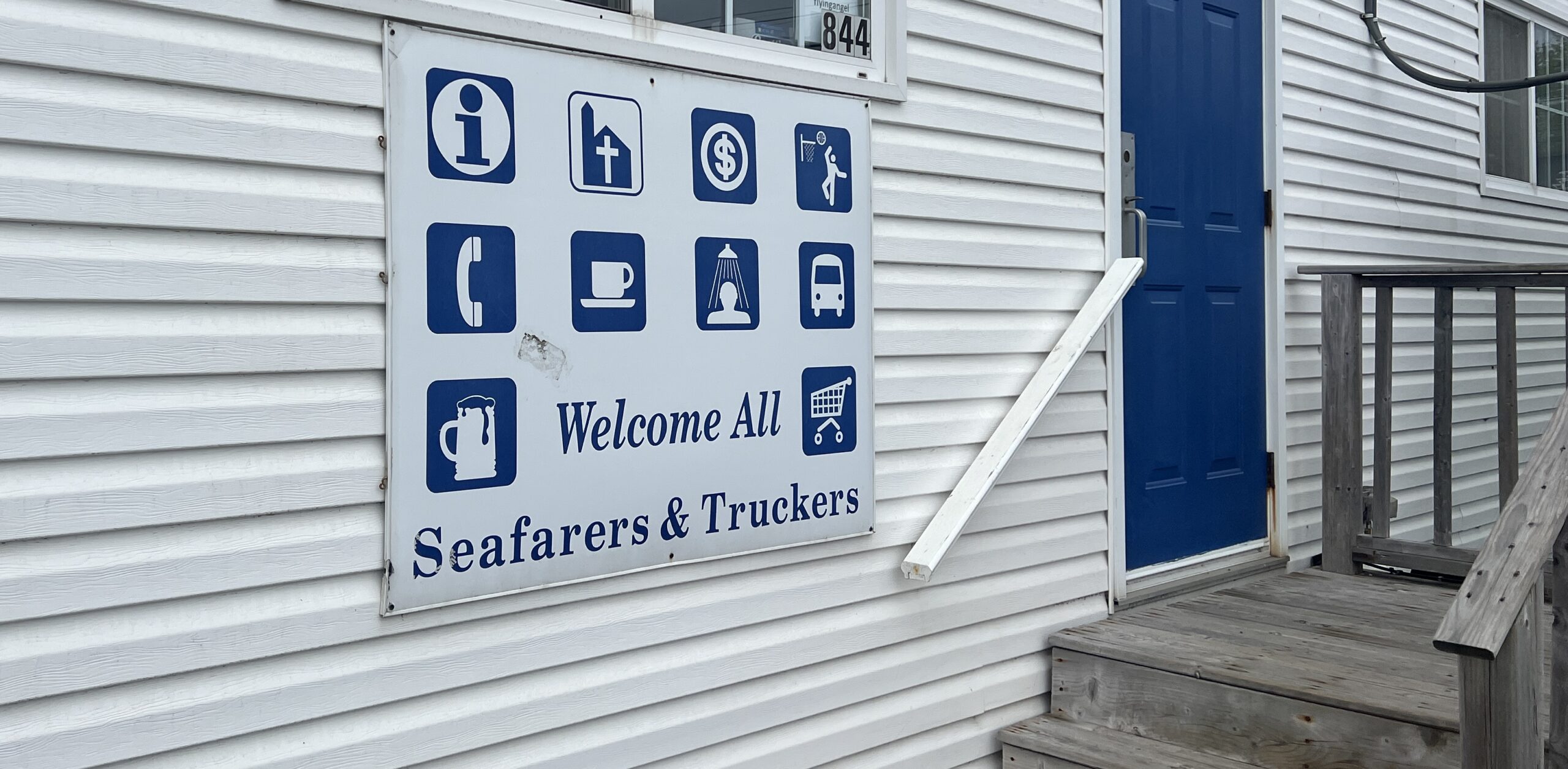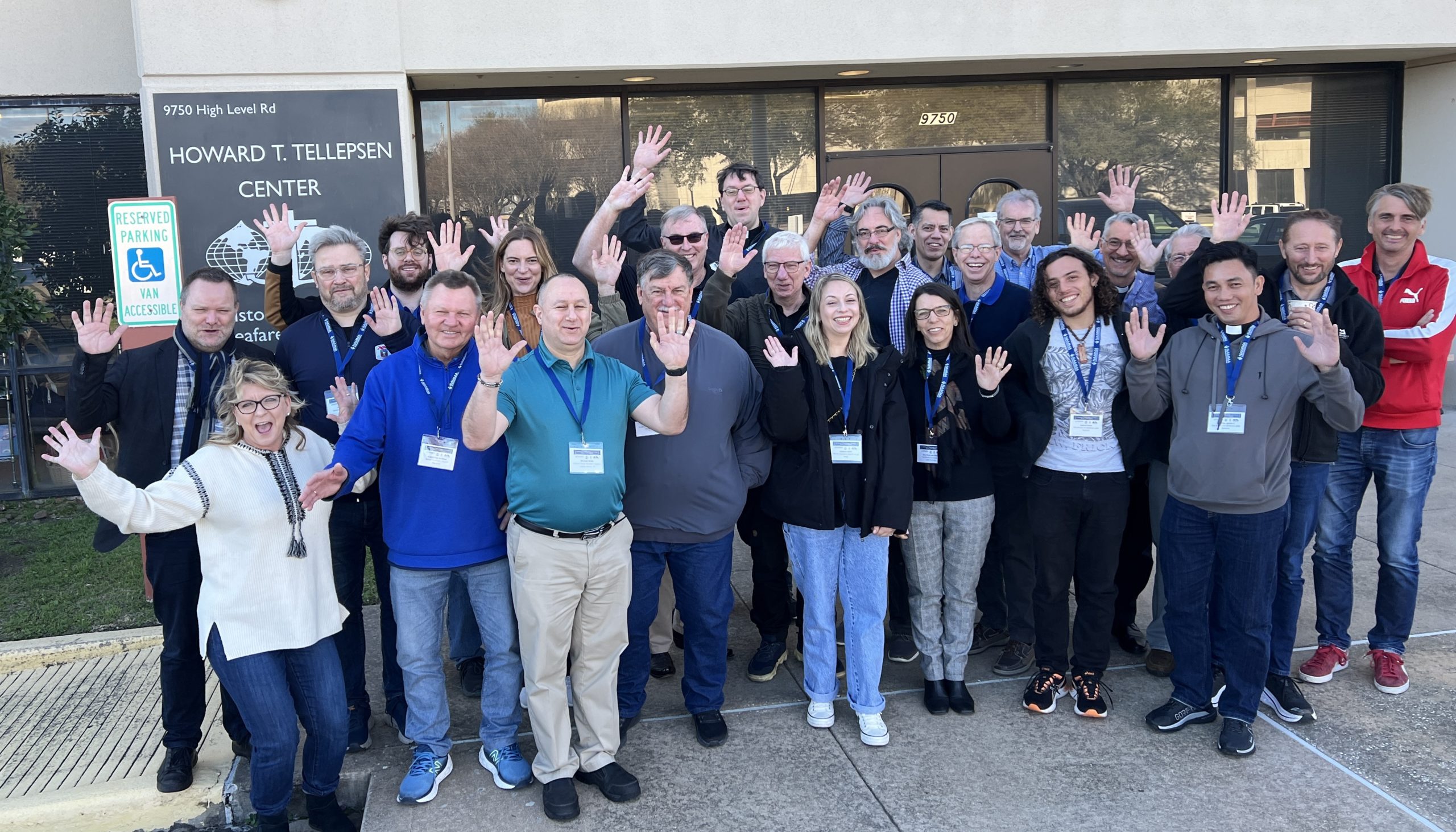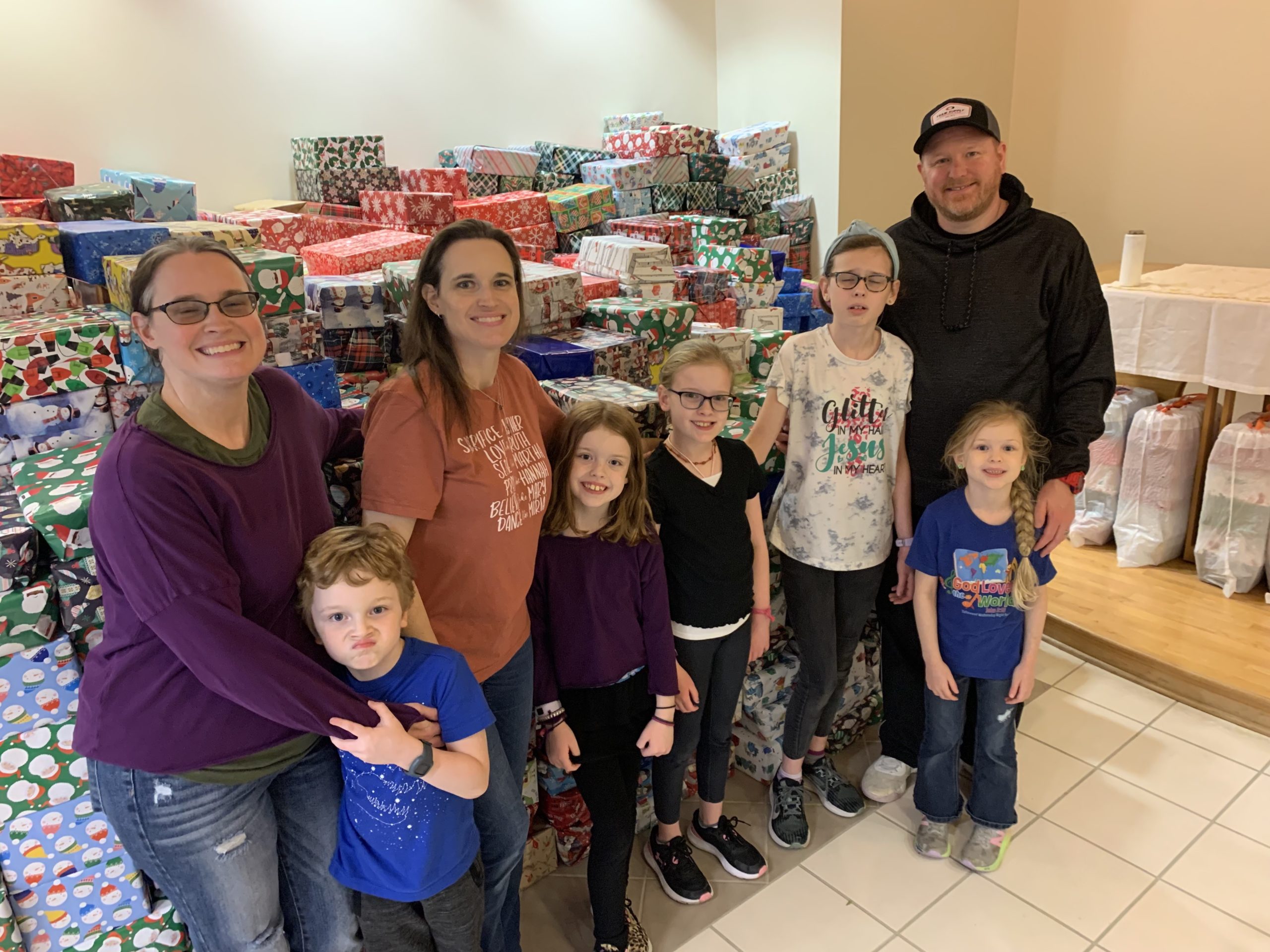by Kevin Walker, NAMMA
Maritime ministry has all too many open questions at the moment. Many of our most experienced chaplains and volunteers have retired, and we have new ones who have never served in normal times. Even what ‘normal’ should mean going forward is uncertain: for the better, the ILO has renegotiated the MLC, 2006 to include internet access; for the worse, shore leave still hasn’t come back to nearly 2019 levels, the Black Sea has become a warzone, and thousands of Ukrainian seafarers have seen their homes invaded and families threatened.
All of this takes the work of heads as well as hands. We meet challenges better when we see how our colleagues are meeting them in their own contexts and think about how today’s decisions affect the longer term. We need to learn resilience, prepare for uncertainties, and – just as important – know and support each other in our shared ministry.
‘Encouragement’, ‘education’ and ‘spiritual and professional development’ are explicitly named in NAMMA’s mission, and every year making these available through programming and subsidies is the focus of most of my and Jason’s work. We continue to work with the ITF Seafarers’ Trust to sponsor summer interns at ministries, and are very happy with this years’ group. We do in-person training for new maritime ministers once a year in Houston, Texas; we work with members and friends to develop online courses; and we regularly publish books, send out surveys, and report on important issues in maritime ministry. And we are always available to talk – if you have not taken advantage of one of these, would like to learn more, or have an idea of your own, please reach out!
Online Learning: MNWB Ship Welfare Visitor Course, MARE Training
One of the most exciting projects we are involved in this year is working with the UK’s Merchant Navy Welfare Board (MNWB) and our videographer Noah Leon to revise the Ship Welfare Visitor Course (SWVC), which can be found online at https://shipwelfarevisitor.com/. The course has long been a staple of many maritime ministries’ training for staff, interns, and volunteers alike, covering such topics as safety when ship visiting, crew structure and how to talk to seafarers, and seafarers’ rights and complaints procedures.
The updated course will feature a greater emphasis on video, with text lessons that are smaller and more easily-digestible. It will consist of 7 units, each about 20 minutes long, with a structure that prioritizes the information that is most basic and valuable to ship visitors and work outwards from there into greater degrees of detail.
The information has been updated to reflect newer developments, like port welfare boards, and includes input from the current experts and leaders in seafarers ministry – Generalsekretär Matthias Ristau of Deutsche Seemannsmission, President Mark Nestlehutt of the Seamen’s Church Institute, and Stuart Rivers, Sharon Coveney, and Neil Atkinson of the Merchant Navy Welfare Board, among others. We’re very excited for the new course’s debut.
Besides the SWVC, we continue to work on smaller, more focused courses on MARE Training. The next one we expect to release is on safely using gangways, the most dangerous areas of ships in terms of number of injuries suffered. We are always looking for more ideas and contributions as well, so if you have an idea please let us know.
Surveys and Reports
Education consists not only in teaching what we already know, but adding to what we know through research. We have done two surveys this year, and have shared at different times our findings both with NAMMA members and the larger maritime community in the interests of advocacy.
The year’s first survey was on the state of seafarers’ welfare in 2021, including information on shore leave, vaccinations, ship visits, and Christmas gifts. The results highlighted the pressing need for shore leave, both for the immediate wellbeing of seafarers and for COVID-19 safety: more than 50% of ministries reported that lack of shore leave was a major obstacle to seafarers who wanted vaccinations getting them, with the median reported rate of crews taking shore leave in ports being less than 20%. More than 50% of ministries identified restrictions put in place by the shipping company as major obstacles to shore leave, compared to just 33% for officers, and less than 10% for port state and terminal restrictions.
In preparation for the ILO’s discussion of the MLC, 2006 in May, NAMMA also distributed a survey among its members’ networks of seafarers asking about how much they used the internet and how happy they were with its availability and quality on board. The results of that survey, which is still ongoing and we encourage you to share with seafarers, are published in more detail elsewhere in this issue in the article ‘Internet for Seafarers’, but we found almost universal support for a right to internet among both ratings and officers, and we are glad to see that something like this has been included in the amendments to the MLC, 2006 that will come into force in 2024.
Return of the Introduction to Seafarers’ Welfare and Maritime Ministry Course
After two years of isolation and online meetings, it was an absolute pleasure to return to the ‘Houston School’ this June for a week of training with new ship visitors. We had a full class of 15 students, and a wonderful diversity of Christians young and old; Anglo-American, Latin American, Caribbean, Korean, and Taiwanese; Southern Baptist, Episcopalian, and Franciscan.
As in years past, the course followed a hybrid online/in-person model, with students coming to Houston having already been provided a few short online lessons, and then spent a week together in lecture and group discussions. Lesson topics included intercultural communication, the business side of shipping, seafarers’ rights, seafaring as sacred work, and the history of seafarers’ welfare.
Guest speakers included Phil Schifflin of the SCI Center for Mariner Advocacy, US Coast Guard Commander for the Galveston-Houston Sector Capt. Jason Smith, and Mission to Seafarers Latin America coordinator and chaplain in the Port of Panama Fr. Ian Hutchinson Cervantes. Dcn. Jeffrey Willard, a student at the course who has begun ministering in the Port of Galveston, also gave a lecture drawing on his experience as a certified counselor.
Fr. Michael Enright, the newly-appointed Stella Maris chaplain for Chicago, was directed to the Houston School by longtime NAMMA member and friend of the school Marshal Bundren. “I wasn’t sure what it was going to be – he just said I should come to it, so here I am, and I’m just amazed by the amount of information.” New to maritime, but with decades of experience in ministry, Enright brought a combination of wisdom and curiosity to the course:
One of the things I have found as a chaplain working in prisons and hospitals is that the person you are visiting is one population you are caring for – the other population is the guards, the doctors. They are human beings too, and the way we interact with the people at the bottom of the hierarchy often has an effect on them. I want to make sure that I talk to the officers on board as well as the ratings, as I am assuming we do.
Another newcomer to our community is the Rev. Joshua Messick, an Episcopalian priest and young father who has recently been hired as the new executive director of the Baltimore International Seafarers’ Center. He brought with him a deep desire to help, expressed both in his contributions to class and in the wool hat he was knitting for a seafarer while he listened. Messick is taking over in Baltimore from Mary Davisson:
I have a wonderful predecessor with 18 years of experience in the Port of Baltimore who is teaching me an awful lot that I would not have been able to find out on my own. She is transitioning me into all of the connections that she’s made, and leaving me a wonderful ministry and group of volunteers. I am absolutely in awe of what Mary has done over the years. And I am very excited to learn how I can build on that – for instance, the Port of Baltimore has offered us a new space for our center, and I really want to learn some of the best practices for how to use it and what seafarers will want from it.
Fortunately for Messick, a great deal of time was spent on excursions to seafarers’ centers and locations of interest for seafarers’ welfare. Besides getting to know their colleagues at the wonderful Houston Center very well, the students also visited the Houston Norwegian Seamen’s Church, with its swimming pool and traditional Norwegian church layout, the star-studded Texas Port Ministry in Freeport, and the refurbished post-hurricane Galveston Seafarers’ Center, with its bike rentals and shelves of Amazon packages for delivery to seafarers. Students also got to visit the Seamen’s Church Institute’s Center for Maritime Education and the Seafarers’ International Union hiring hall.
As in years past, the most valuable part of the course was getting new maritime ministers worshiping, talking, and spending time together. As President Paul Rosenblum taught in his lecture on the ‘ecology’ of maritime, it is through networking and communication with each other and the rest of the maritime world that ministries can make a large-scale difference. We are thankful to have in our classroom a network that spans from Quebec to Argentina, and we look forward to seeing some of them at the 2022 conference.
Photo: students gather for Houston training program on June 5, 2022





